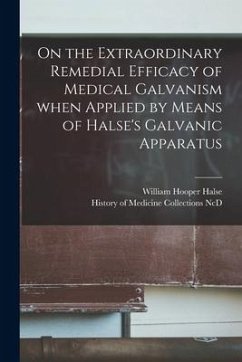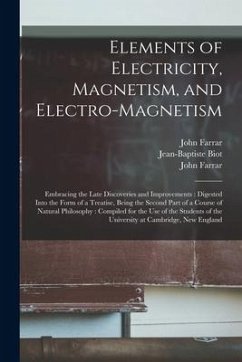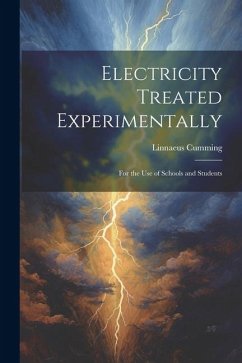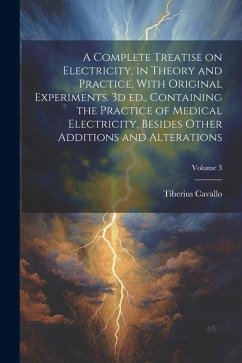
An Account of the Late Improvements in Galvanism
Versandkostenfrei!
Versandfertig in über 4 Wochen
18,99 €
inkl. MwSt.
Weitere Ausgaben:

PAYBACK Punkte
9 °P sammeln!
Explore the electrifying history of medical science with John Aldini's "An Account of the Late Improvements in Galvanism." This fascinating early work details the groundbreaking experiments and advancements in galvanism, a precursor to modern understanding of electricity and its potential applications. Aldini meticulously documents a series of curious and interesting experiments, including those performed before the esteemed Commissioners of the French National Institute. Dive into the world of early electrical experimentation as Aldini explores the exciting possibilities of galvanism and its ...
Explore the electrifying history of medical science with John Aldini's "An Account of the Late Improvements in Galvanism." This fascinating early work details the groundbreaking experiments and advancements in galvanism, a precursor to modern understanding of electricity and its potential applications. Aldini meticulously documents a series of curious and interesting experiments, including those performed before the esteemed Commissioners of the French National Institute. Dive into the world of early electrical experimentation as Aldini explores the exciting possibilities of galvanism and its impact on medical thought. This volume offers a unique window into the scientific curiosity and innovative spirit of the era. A must-read for anyone interested in the history of science, electricity, and the foundations of medical treatments, this book is a testament to the enduring human quest for knowledge and understanding. This work has been selected by scholars as being culturally important, and is part of the knowledge base of civilization as we know it. This work is in the public domain in the United States of America, and possibly other nations. Within the United States, you may freely copy and distribute this work, as no entity (individual or corporate) has a copyright on the body of the work. Scholars believe, and we concur, that this work is important enough to be preserved, reproduced, and made generally available to the public. We appreciate your support of the preservation process, and thank you for being an important part of keeping this knowledge alive and relevant.














